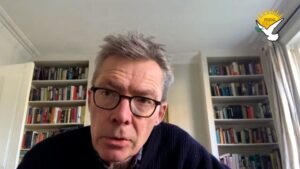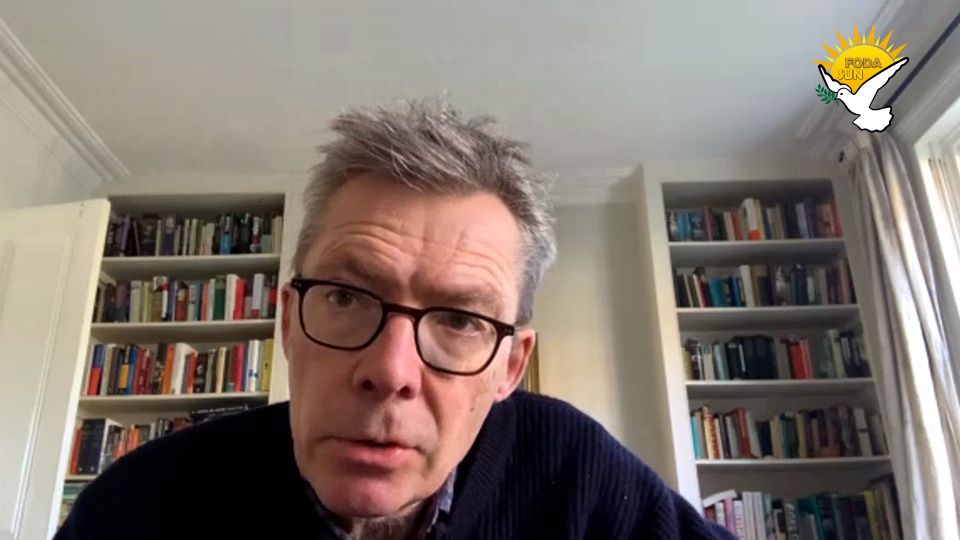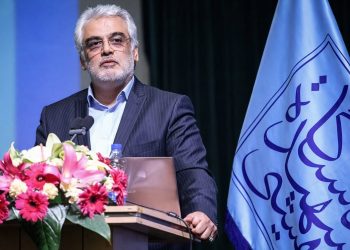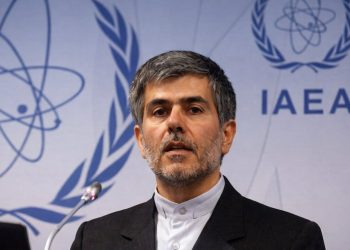According to the Foundation of Dialogue and Solidarity of United Nations Public Relations, the third international conference on “The Future of Peace and Human Rights in West Asia” was hosted by FODASUN on Thursday, December 9 in cyberspace on the occasion of World Human Rights Day. This conference was attended by more than twenty speakers from about 13 countries.

The Foundation of Dialogue and Solidarity of United Nations is a non-governmental organization dedicated to regional and international peace, dialogue, solidarity and the defense of human rights. FODASUN holds an annual conference entitled “The Future of Peace and Human Rights in West Asia” with the aim of regional synergy and integration, strengthening the culture of peace and dialogue, and providing solutions to address the challenges in the West Asian region.
Prominent diplomatic editor of the Guardian, Patrick Wintour made the remarks at the 3rd Int. conference of FODASUN addressing the human rights situation in West Asia. First of all, he said,” I am aware that it is not easy for a British person to speak to an Iranian audience about human rights, or to claim some ownership of the high moral ground when our own history in relation to Iran is so full of mistakes ranging from the support of the Shah of Iran, or for its role in the coup of 1959”
“I also think that Iran in some limited respects has a larger democratic space than many other middle east countries including Saudi Arabian and the UAE. Within tightly controlled limits your newspapers air different opinions, even if the ruling elite are not subject to the kind of scrutiny and long-term investigations that occur in the western press” he added.
The diplomatic editor for the Guardian clarified,” my brief is to speak about West Asia, and what I wanted to discuss most is how Europe including Britain could adopt a more consistent and less hypocritical approach to human rights in that region”. “The difficulty at present is that the West has for historical and economic reasons allied itself with some highly suppressive regimes Saudi Arabia, UAE, Bahrain, as well as regimes that have become progressively more repressive such as Turkey. Too often a blind eye is turned. It is only if someone has been shown to have been dismembered in an embassy is there much complaint. That dreadful murder of Jamal Khashoggi led to the UK and other countries placing sanctions on some of the individuals involved, but not on the Crown Prince himself on the ludicrous basis that the UK has no evidence he was aware of what happened.”
criticizing his country’s approach to human rights Patrick Wintour said” In the British case, the government always says human rights issues are best addressed in private diplomacy rather than public criticism. Diplomats seem to be genuine about this. It is always difficult to know how intense the private criticism has been in reality, or how influential that criticism might be when it is set alongside the British willingness to strike arms deals, nurture colonial ties provide capital, or offer the UK as a soft power base through buying hotels sports events or football teams”.
Wintour mentioned” there is insufficient pressure from the West to turn away from authoritarianism, and that former colonial powers do not see human rights as a priority. Too often EU countries say human rights are non-negotiable but then when it comes to trade deals or investment projects, human rights prove to be very dispensable and very negotiable”.
“In addition, after the failure of America in Afghanistan but as well before – the West started to believe some regions were not ready for the compromises democracy entails, that somehow human rights can only thrive in liberal or secular societies, and not in a theocratic intolerant state. That is not what public opinion surveys in the Middle East say, or the women in Afghanistan are now being deprived of their right to education. Most people welcome democracy and believe it to work. But perhaps Afghanistan shows how long it takes for democratic institutions to embed themselves. Building a nation is a work of decades” he noted.
The Guardian’s diplomatic editor ended his speech with: “Iran has to think about why so many talented people leave their country, and it is not because they are not un-Islamic, or suffering from sanctions. A more open Iran would be a more prosperous Iran”.





